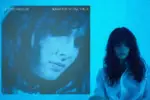I don’t know about you, but it seems to me that nowadays, pop songs only seem to be getting sadder and sadder. The tracks I hear on the radio are not happy tunes expressing love, gratitude, forgiveness or some other positive emotion; rather they are laments, mourning the loss of all happiness and everything good in the world. I can’t help but notice how most pop songs are now excessively pessimistic. There is no positivity to be found, but instead disdain, discomfort and accumulated anger.
I had a brief discussion with my dad a couple of months ago about the kind of music that was popular when he was a college student in the ‘70s. My dad, like me, was an avid listener of pop music. When I asked him about the subject matter of the pop songs that he listened to, he explained without hesitation that they all covered cheery topics. When my dad was my age, pop music was distinctively bright and happy. It spoke to the themes of love, romance and harmony among all people. You seldom heard a sad song on the radio. Even the saddest songs still had traces of happiness contained within them, rarely deviating from the euphoric themes of love, affection and tenderness.
After hearing my dad’s take on this topic, I decided that I needed to retrieve information from more sources, so I went to my mom. I asked her similar questions, to which she responded with similar answers. I wanted to obtain an accurate picture of the style of pop music that was popular when my mom grew up. My mom, unlike my dad, grew up and attended college in the ‘80s in the Ukraine during the unstable peak of the Soviet Union. Despite these cultural and political differences, the pop music that she listened to back in the day was very similar to the pop music my dad listened to — the lyrics were all happy.
My mom shared that when she was my age, she did not recall there being many sad pop songs, if any. If there were, she did not listen to them. When questioned about the sort of themes that appeared in these songs, my mom mentioned the prevalence of topics like the romance between lovers and positive friendships. Effervescent pop music was the most popular kind of music to listen to during the 1980s-1990s in the Soviet Union because its happiness brought comfort to teenagers during these hard times. It allowed them to dream of a better world, one that was free from the hardship and oppression of communism.
Hearing these similar perspectives from both of my parents made me realize just how starkly different the old era of pop music was from that of contemporary times. It opened up my eyes to the melancholy that has overtaken pop music over the years. In today’s age, most pop songs that you hear on the radio focus overwhelmingly on sorrowful topics, such as the ever-growing battle with mental health and breakups, in relationships both platonic and romantic. In contrast to the pop music of previous decades, today’s pop music is undeniably, well, sad. Take Olivia Rodrigo’s new hit pop album, “Sour,” for example. Although some songs are upbeat in nature, they are all riddled with the same underlying, dismal themes: heartbreak and angst.
One may wonder about the factors that could have contributed to this drastic change. I know that I definitely do. Personally, I believe that the romanticizing of mental health issues, above all other things, has contributed to this rise in sad pop songs. In current times, it is hard not to notice the abundance of depictions of mental health issues in popular media. Something that was previously highly stigmatized and rarely talked about now appears in television, social media apps, music and other media in the United States.
Although this can be interpreted as a positive sign that we are taking mental health issues more seriously, it can also be argued that we, as a society, have taken this too far. Rather than simply raising awareness for these types of issues, many forms of popular media have crossed into deadly territory, going as far as to glamorize these issues, which mercilessly plague the lives of teenagers and young adults all over the country.
We as a society have been conditioned by popular media to romanticize mental health issues, such as depression and anxiety. Although a certain degree of destigmatization of these mental illnesses is important, we have to admit that in popular media’s attempts to normalize mental illness, they have unwittingly branded it as something that is “cool” and “trendy.” This unintended consequence, in my opinion, is indirectly responsible for the significant rise in sad pop songs.
The romanticization of mental illness can be especially observed on the popular social media app TikTok. Creators on the app, from my observation, seem to have a natural inclination to romanticize mental illness in their 10-second videos. Artists observe these depictions of mental health in the media and use that as inspiration for their music; they then observe this element in each other’s work and begin to mimic what they see.
After all, it is only human nature. Before you know it, there is an explosion in the music industry, with everyone writing sad songs about the negative mental side effects they experience, ignoring all positive aspects of life. This quickly becomes a vicious cycle, a domino effect that once put in motion, cannot be easily stopped. Although this new expression of raw emotion and feeling can be viewed in a positive light, it has become far too pervasive and exaggerated to be taken seriously.

















